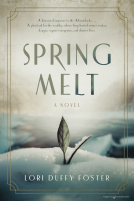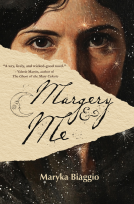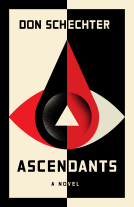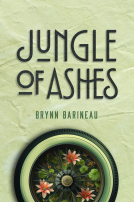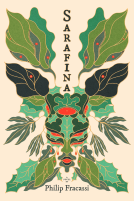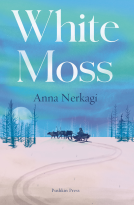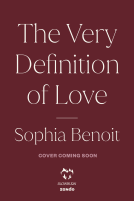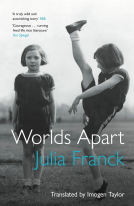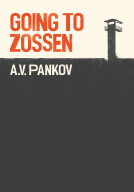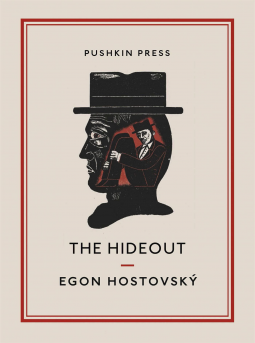
The Hideout
by Egon Hostovský
This title was previously available on NetGalley and is now archived.
Send NetGalley books directly to your Kindle or Kindle app
1
To read on a Kindle or Kindle app, please add kindle@netgalley.com as an approved email address to receive files in your Amazon account. Click here for step-by-step instructions.
2
Also find your Kindle email address within your Amazon account, and enter it here.
Pub Date Jul 25 2017 | Archive Date Apr 26 2017
Pushkin Press | Pushkin Collection
Description
A powerful and moving novel about one man's final, fatal, heroic act of resistance in Nazi France.
Advance Praise
"Whether charting transient freedom in Paris, “city of light rustlings, of sweetly secret speech, of blue grayness”, or chronicling inner turmoil, this overlooked classic is both beautiful and intense." — Glasgow Herald
"A superb writer." - Milan Kundera
"The Hideout' is important as an encouraging example of a new spiritual trend in European literature." - Free World
"A remarkable novel... As absorbing reading it matches any popular novel, yet it does so without the customary devices." - The New Masses
"Hostovsky delights in discoveries of the depths and oddities, the strange courses and subtle transformations of human souls... A forceful language rich in images adds to the pleasure of reading." - Saturday Review
Available Editions
| EDITION | Other Format |
| ISBN | 9781782272403 |
| PRICE | $18.00 (USD) |
| PAGES | 128 |
Average rating from 17 members
Featured Reviews
 Fran E, Reviewer
Fran E, Reviewer
Hidden in a villa in Normandy during World War II, our narrator has written notes to his wife, Hanichka in the form of a deathbed confession. He is about to perform a heroic act for the French Resistance on condition that his writings are safeguarded and released to his wife after the war.
An unhappily married engineer, seeking passion, follows the skirts of Madame Olga to the streets of Paris, abruptly leaving his wife and children in Prague. Following Olga's rejection, he finds himself unable to return to Czechoslovakia. The engineer and inventor had developed a sight for anti-aircraft guns. After Munich's March on Prague, he decides to burned the blueprints. Unbeknownst to him, his employer has reported him to the Nazi regime. The Nazi government issues an arrest warrant convinced that he will sell his ideas to France. Tipped off by his secretary, the engineer seeks refuge in Paris.
As the Nazi's advance on Paris, the engineer goes into hiding at the Normandy villa of Dr. Aubin. For the duration of the war, he intends to hide underground in a dank, dark cellar provided by Dr. Aubin and is left to pass the days ruminating and reliving glimpses of bygone scenes. He replays scenes from his marriage and laments, knowing he his lost everything. Dr. Aubin advises him to regard events unfolding outside the cellar hideout as an exciting play that doesn't concern him, a play with a finite ending. The engineer cannot cope and starts to loose touch with reality.
"The Hideout" by Egon Hostovsky is a novel of regret and longing. The engineer paid attention to his former life in Prague, in retrospect, only through memories and dreams, his life now, an empty shell of existence. Hostovsky describes the inner turmoil and wartime events experienced by an unlikable man. It examines a life of unhappiness and a quest for redemption. Notes recorded and left for Hanishka explain in words and thoughts what the engineer felt might have been. An excellent read.
Thank you Pushkin Collection, Steerforth Press and Net Galley for the opportunity to read and review "The Hideout".
 Joseph C, Reviewer
Joseph C, Reviewer
Right before the outset of the Second World War, a Czech engineer leaves Prague for Paris, in the vague hope of an extramarital affair. He soon learns that the Germans have occupied his country. He is also informed that they have issued a warrant for his arrest since he had previously developed a gunsight which could be a gamechanger in the forthcoming hostilities. From the dank, dark cellar of a French friend where he hides for nearly two years of the war, our hapless protagonist writes to his wife – his “dearest Hanichka” – what is at once a love-letter and a confession. He explains his sudden disappearance, describes his voluntary imprisonment and how he, uncharacteristically, killed a man in cold blood. He also speaks about an imminent, momentous decision which he needs to make, and which may yet redeem him.
Czech-born, US-based author Egon Hostovsky was much admired by Graham Greene and, on the basis of this novella (translated from the Czech by Fern Long), it is not difficult to understand why. This philosophical thriller presents us with a man grappling with his conscience, trying to find moral bearings in extraordinary circumstances where peacetime rules of good and evil no longer seem to apply. The sense of claustrophobia is well brought out and the moral conundrum provides much food for thought.
 Alyssa N, Reviewer
Alyssa N, Reviewer
The Hideout is a farewell letter from a man who has decided to strike a blow to the Nazis for the French resistance to a wife he left years before, apologizing for his mistakes and reflecting on how he ended up in his position. It's not a typical WWII novel about giving a strong resistance to Nazi Germany, or even being a tragic victim of the regime, but rather an honest account of a weak-willed man who has a hard time making decisions and who was really just caught in the wrong place at the wrong time with the wrong set of circumstances. He's not a hero, but a man who was unhappily married and trying to find happiness. In some ways, the narration reminded me of The Stranger by Camus. It's not really an existential piece of work, but it has that same fluid type of narrative with a flawed character that I had trouble either rooting for or against.
What I loved about this novel was its approach towards providing an honest account; the narrator is not colored as a hero or a tragic victim; rather, he is simply a man in unfortunate circumstances. His confinement in his friend's basement isn't thrilling or heroic; it's boring. The darkness blinds him, the isolation drives him mad, and he has so little to eat, he ends up losing his teeth. The narration is honest and straightforward and paints a bleak picture of the situation. While the story itself isn't particularly thrilling, it brought up a lot of questions for me to ponder. Would it have been better for him to work with the Nazi government and chance meeting his wife and kids someday down the road? What is more important: family or keeping dangerous technology out of the hands of immoral people? What does happiness really mean anyway? And how can we possibly redeem our mistakes and the hurt done to the ones we love?
The Hideout is a short read and I'd recommend reading it in one setting in order to get the full effect of the story as a whole. I don't think it's the kind of story everyone would enjoy, but I do think that it's worth a read. If you're at all interested in literary works and analyzing them to find a deeper meaning, this one is definitely prime material for that; I could see this as a great companion to the World War II unit in a classroom.
 Elena C, Reviewer
Elena C, Reviewer
In "The Hideout," a Czech engineer writes letters to his wife, Hanichka, from his hiding place in occupied France. In them, he describes how he went to Paris in 1939 without her knowledge in order to chase after another woman, only to be trapped there when the Nazis, who have taken Czechoslovakia, declare him a wanted man because they believe he was trying to sell the French a gunsight he was developing. However, his attempts to sell the gunsight to the French end in rejection and failure. Ultimately he ends up hiding in a basement, so desperate to escape to America that he'll try anything, even a suicide mission.
"The Hideout" was originally published in 1945, and it has that flavor of mid-century Middle/Eastern European fiction. It is a short read, only about 130 pages, and is both brisk-moving and compelling (if you like the kind of thing that it is), and utterly unlike your standard American thriller. Despite its brevity, much of the main character's notes are concerned with his inner state, as he contemplates the madness he is descending into due to confinement and strain. The events that take place during the book are gripping in the extreme--the narrator has to flee for his life, and kill to protect his hiding place--but most of the story is taken up with dialogue and introspection. Although the grand sweep of the war certainly concerns the narrator, since he is caught up in it in the most literal way, this is not an epic war story but a tightly-focused novella about the effects of the war on one person's psyche, perhaps as a stand-in for what the war was doing to everyone involved, and particularly those in countries like Czechoslovakia that had no choice but to surrender--to "go into hiding," as it were--or die in probably futile resistance attempts. It's easy for the heavyweights of WWII to wonder at the passivity of the little countries, especially those situated so unfortunately between Nazi Germany and Soviet Russia, but for places like Poland and Czechoslovakia, "hiding" was their best bet for survival. All in all, a fascinating little story about an experience and by an author that the English-speaking world may not have much knowledge of.
My thanks to NetGalley and the publisher for providing a review copy of this book. All opinions are my own.
 The Idle Woman ., Reviewer
The Idle Woman ., Reviewer
3.5 stars.
A man writes a long overdue letter to his distant wife, from the cellar where he has been hiding in Normandy since the invasion of France by the Nazis. It is a confession, an affirmation and a form of self-analysis. The narrator is by turns ridiculous and profound, confined in his hiding place while war rages above: forced, while great events unfold unseen outside, to retread the well-worn paths of his own memories. Yet, in coming to understand his past, he has more sense of purpose in the present and, finally, begins to see the shape that his own future must take.
The Hideout begins with the narrator's departure from Czechoslovakia and this is no love story to a country, but rather a self-centred man's efforts to understand the strange trajectory his life has taken. He flees Prague not for his safety or his beliefs but because he's chasing a woman for whom he feels a certain tendresse, and whom he believes feels the same for him. Leaving behind him his wife and daughters, he pursues this woman to Paris, a city which captivates him with its vivacious disregard for convention. Here, he believes, a man may become anything he wishes to be, and a woman likewise. But his dream of a grand affair is dashed, not by a confrontation, but by a quiet accidental glimpse of his beloved, who weeps when she thinks he isn't looking, at the thought of her shame. That is enough for our narrator who, despite everything, does love his family. He resolves to go home and make it up to his wife... but circumstances prevent it.
For war is coming, rolling into Paris in Panzers and jackboots. And, in the shadow of those troops, our narrator realises that his own talents may come back to bite him. He is an engineer, who has devised a revolutionary sight for anti-aircraft guns: a sight which the Nazis in Czechoslovakia would be eager to have, but for which he has destroyed the blueprints (not out of patriotism but a momentary petulance). Fearing for his wellbeing if he is found, he goes to ground with the assistance of his eccentric acquaintance Dr Aubin. Here, in the dark of a cellar, he finally has the chance to stop, to review his life and to puzzle out how to face such overwhelming times. Should a man hide in the dark, like a rabbit run to bay? Or should he seek something greater to believe in? It's this moral debate which underlies the book's framing monologue.
Hostovský didn't feel like an immediately identifiable Czech writer as, for instance, Urzidil did. There are no beautiful vignettes of old life in Bohemia here. But there is a pervasive melancholy: a belated realisation of what is at stake and what is lost. I should emphasise that the story isn't autobiographical. Hostovský was Jewish and worked for the Czech Foreign Ministry. In 1939, he was posted to Brussels which meant he was already out of Czechoslovakia when war was declared. He did then, however, move to Paris like the narrator, but his stay was brief: he then moved on to Portugal and finally, in 1941, to the USA. Not everyone in his family was so fortunate: Wikipedia tells me that his father and sisters died in concentration camps. Apparently his work frequently focuses on his protagonists' struggle against evil and their state of exile, in some form or another, which speaks all too eloquently of the life-experience of the émigre. And in that sense one feels that his life experience is flavouring his works, without dominating them.
This is not upbeat, of course, and the narrator isn't exactly sympathetic - if we feel for him, it's because he has been caught up in such typical human frailties and weaknesses - but it is inspiring, in seeing how he makes sense of his world and his place in it. Perhaps it's in the moments when we are most trapped, most blind, that we begin to feel the true potential of humanity. Another thoughtful, poignant mid-century classic from Pushkin, who always manage to unearth intriguing little gems.
For the review, due to be published on 26 April 2017, see my blog:
https://theidlewoman.net/2017/04/26/the-hideout-egon-hostovsky
 Tasya D, Reviewer
Tasya D, Reviewer
I love historical fiction, but when we are talking about post 1900 historical fiction, I prefer reading about WW2 and the 90s. The reason is simple: most of the beautiful stories I've ever read are set in ww2, while the 90s have a very familiar and fun pop culture references. The Hideout is not an exception, it's a short, but beautiful story of who made the wrong choices and try to redeem it with one last heroic act.
I find our main character hard to like, but there are moments where he grew on me. I think it's part of his character growth. It explores the dynamic of life in its short pages through the eyes of our main character, this book is filled with regret and longing, emptiness and searching for passion, as well as contentment and peace. It will take you to his highest and lowest moment during the short duration of this book. I also really like Dr. Aubin, and I wish we knew more about him.
The prose is poetic, yet easy to understand. It beautifully conveys the character's feelings. This is also a Czech classic literature. I was expecting something different, maybe in terms of writing style or get a glimpse of life in the country. Alas, I was dissapointed. I feel like it could set anywhere. I still really enjoyed it though, and will definitely check the author's other works or other Czech literature.
 Bonnye Reed F, Reviewer
Bonnye Reed F, Reviewer
I received a free electronic copy of this historical novel from Netgalley, the heirs of Egon Hostovsky, the heirs of Jane Long (these heirs are not yet located), translator, and Pushkin Press. This novel was originally published in the US in 1945, and in Czechoslovakia in 1946.
This novel is formatted as an extended love letter/confession, or as a journal. The letter is addressed to Hanna (Hanichka) from her husband, a nonpolitical Czechoslovakian engineer who followed a skirt to Paris just days before Czech fell to the German army. As the inventor of an vastly improved gunsight, this engineer is known politically, and following his rush to France, the Germans put out a warrant for his apprehension, thinking that his visit to Paris to was give the French the plans for his gunsight.
Unable to travel back home, he has now abandoned his wife and children, outgrown his infatuation with Madame Olga, destroyed the plans for the gunsight and hidden for months in the cellar of Dr. Aubin, a casual acquaintance from his school days. After days in delirium from an illness, he looks out the crack in the basement wall and spies another face from his childhood - wearing an all black Nazi SS uniform. Unthinking, he rushes out to greet his old friend, a boy not bright but now a loyal German. Our engineer finds the only way to protect Dr. Aubin is to kill the Nazi. His days of watchful waiting are now over.
This is an excellent book, originally printed in a very timely fashion. I found the ending a bit too vague, until I remembered that the ending was really the beginning.
 John A, Reviewer
John A, Reviewer
http://www.themodernnovel.org/europe/europe/czech-republic/egon-hostovsky/the-hideout/
http://www.themodernnovelblog.com/2017/06/01/egon-hostovsky-ukryt-the-hideout/
 Annie S, Librarian
Annie S, Librarian
Egon Hostovský’s The Hideout, originally published in the mid-1940s, is another Central European novella rescued from obscurity by Pushkin Press. The novella takes the form of a letter written by a Czech engineer who makes a terrible mistake just before the Germans invade the former Czechoslovakia. He is writing to the wife he left behind with their children in Prague, explaining how he ended up in a cellar in northern France about to go to his death. He begins with why he left and carries on with his misadventures up until the novella cuts off abruptly.
The unnamed engineer begins with an admission that revealed, to me, how hapless and unworldly he is. Just before the world breaks out, the engineer is working on a new kind of anti-aircraft gunsight. It’s not finished, but it’s clear that the invading Germans would be very interested in it. The engineer is—as he tells people who ask—terrified that his military secret will fall into enemy hands. But, as he admits in the letter to his wife, he is rather more interested in catching up with Madame Olga, the Jewish widow that the engineer has been interested in. She goes to Paris and he follows. When the Germans swear out an arrest warrant for him, he lands deep in the soup, deeper than he is prepared to handle.
After he lands in Paris and runs through all the money he brought, the engineer is saved from arrest or immanent death by exposure when he bumps into an old acquaintance. Dr. Aubin, after the engineer tells him of his plight, offers to put the engineer up in his cellar, feed him, and hide him until they can make other arrangements. Dr. Aubin, in a piece of clear foreshadowing, tells the engineer of a cousin who went mad while hiding. This time, the doctor declares, will be different because the engineer will be able to leave whenever he likes. The door won’t be locked.
But for our weak-willed engineer, the promise of instant freedom isn’t enough to stop him from mental suffering. The engineer’s mental state deteriorates as food and supplies get scares. Dr. Aubin works for the Resistance and is frequently called away. The loneliness and the hunger drive the engineer to the brink, until he makes a stunningly stupid mistake.
The Hideout is an interesting journey inside the brain of someone who hide from the Germans that doesn’t follow the usual trajectory of World War II on-the-lam novels. The engineer isn’t Jewish. He’s just a guy who knows a little too much and who is terrible at realizing how dire circumstances are when he flees. Perhaps the best way to describe him is that the engineer is a guy whose life is heavily touched by good and bad (mostly bad) luck. His letter is deeply affecting. Even though he never apologizes for his actions, it’s clear he regrets ever leaving his family.
I received a free copy of this book from NetGalley for review consideration. It will be published 25 July 2017.
